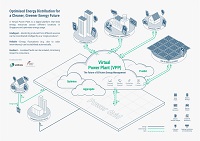Every market participant is required to provide up-to-date data of its facilities to the PSO, including the physical characteristics, ratings and operational limits of all relevant equipment and facilities connected to the system controlled by the PSO.
The PSO uses the information to:
- Assess the security and reliability of the power and gas systems
- Direct operations of the transmission equipment
- Dispatch the registered generation and load facilities
- Assist the Energy Market Company (EMC) with registration of the Market Participant’s facility
- Provide up-to-date data to the EMC for market clearing purpose.
The timely submission of accurate and complete data is critical to participate in the NEMS. This is also necessary for the real-time operation of the power system, outage planning, and stability and security assessment applications.















